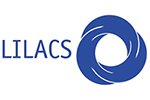ISSN Online: 2177-1235 | ISSN Print: 1983-5175
Showing of 1 until 2 from 2 result(s)
Search for : Márcio Vinícius Nurkim
Pharyngoesophageal Reconstruction: Using Microsurgical Jejunum and Pectoralis Major Flaps
ABSTRACT
Pharyngoesophageal reconstruction is one of the major challenges of neck surgery. Many treatment options have been described. All of them involve procedures of greater or lesser technical complexity and high rates of complications and mortality. The present study describes the techniques performed at the Service of Plastic Surgery of the PUC-RS São Lucas Hospital in 10 reconstructions: myocutaneous pectoralis major flap and microsurgical jejunal flap. Indications, complications, advantages and disadvantages of each method are discussed.
Keywords: Pharyngoesophageal reconstruction; microsurgical jejunum and pectoralis major flap; free jejunum; cervical reconstruction
RESUMO
A reconstrução faringoesofágica é um dos maiores desafios cirúrgicos da região cervical. Existem diversas opções terapêuticas descritas. Todas envolvem procedimentos de maior ou menor grau de complexidade técnica e altas taxas de complicações e de mortalidade. Este artigo descreve as técnicas utilizadas no Serviço de Cirurgia Plástica do Hospital São Lucas da PUC-RS em 10 reconstruções: o retalho miocutâneo peitoral maior e o retalho microcirúrgico de jejuno. São discutidas as indicações, complicações, vantagens e desvantagens de cada método.
Palavras-chave: Reconstrução faringoesofágica; retalho peitoral maior e jejuno microcirúrgico; jejuno livre; reconstrução cervical
Incidence of Hematoma and Seroma in Abdominoplasty with and without the Use of Drains
ABSTRACT
Based on the experience with 69 patients submitted to abdominoplasty, the authors compare the use of capillary tubes, suction drains and not using drains in the postoperative period as to the effictiveness in preventing hematomas and seromas under the abdominal flap. They also study the association of these fluid collections with known risk factors. They describe the indications and surgical technique employed in their cases and compare results obtained with data available in literature.
Keywords: Abdominoplasty; dermolipectomy; hematoma; seroma; drains
RESUMO
Os autores, baseados na experiência de 69 pacientes submetidos a abdominoplastia, comparam a utilização de dreno de capilaridade, de sucção e a não utilização de drenos no pós-operatório quanto à eficácia na prevenção da formação de hematomas e seromas sob o retalho abdominal, bem como estudam a associação dessas coleções com fatores de risco conhecidos. Descrevem as indicações e técnica cirúrgica empregadas em sua casuística e comparam seus resultados com dados presentes na literatura.
Palavras-chave: Abdominoplastia; dermolipectomia; hematoma; seroma; drenos
 All scientific articles published at www.rbcp.org.br are licensed under a Creative Commons license
All scientific articles published at www.rbcp.org.br are licensed under a Creative Commons license






